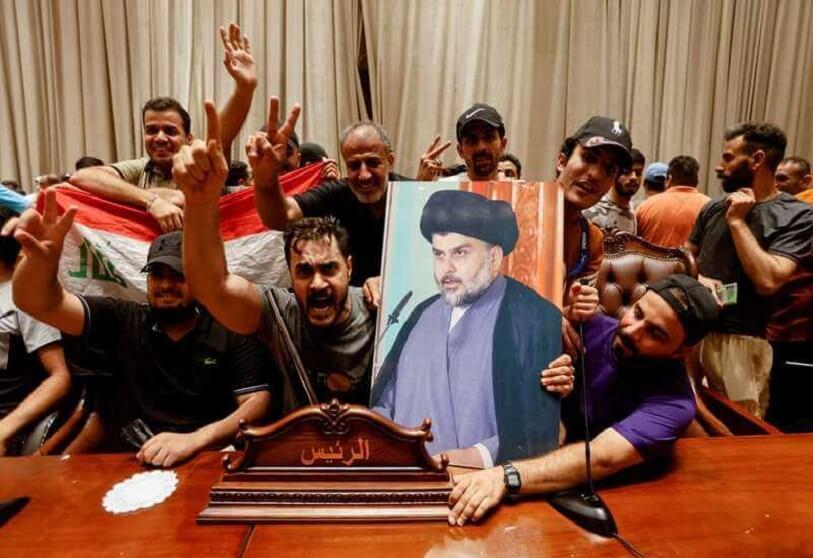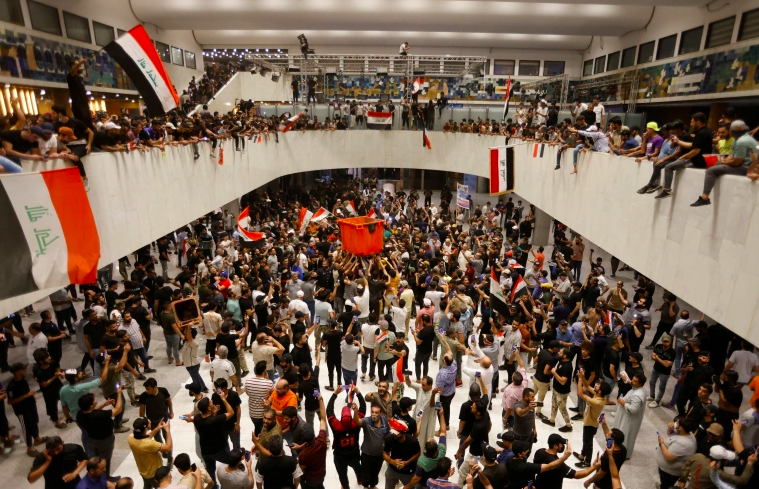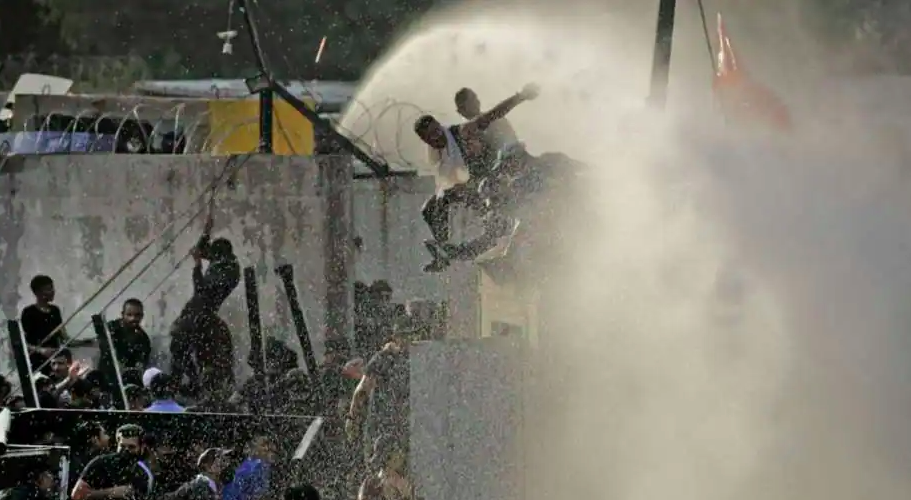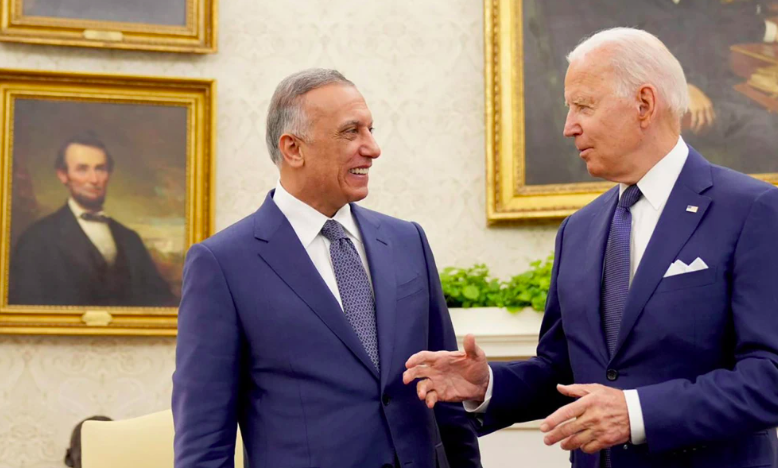The Sadr movement's occupation of the Iraqi parliament

The Sadr movement has been occupying the Iraqi parliament for almost a week now. This act of protest amounting to a coup according to observers came following Sadr’s 73 MPs resignation in June. Before their resignation the Sadri movement formed the biggest parliamentary block. By forming an alliance with all Sunni and all Kurdish parties (including the Kurdish Democratic Party and Al Halbousi’s al-Takadum), Sadr attempted to exclude all other Shia parties from the government. Despite the fact that his voters largely consist of Shia Iraqis, al-Sadr rejects any form of alliance with Shia parties. This attempt however failed due to internal differences, and due to the Coordination Framework (CF) forming a blocking third as the constitution stipulates that a two-third majority is needed to form a government. Frustrated by his failed attempts, Al Sadr gave orders to his MPs to resign claiming that he would not be involved in politics anymore.

According to the Iraqi constitution, when MPs resign, their seat will go to the runner-up of their respective district. In reality this meant that the CF inherited almost all Sadri seats, making them the biggest block in parliament. This gave them the opportunity to start talks to form a government. The CF is an ad-hoc group of Shia parties that got together following the elections last year including the Da’wa party, al Hikma party and a wider coalition that reflects the interests of the Popular Mobilization Forces.
After becoming the biggest block in parliament the CF nominated Mohammed Shia al-Sudani as Prime Minister of Iraq. This move has prompted the Sadrist to resort to extrajudicial ways such as occupying the parliament to block the CF from forming a government.
In response to the occupation of the parliament the CF mobilized their followers in a counterprotest. In contrast to the Sadrists entering the parliament with ease, these protestors were beaten down violently by the Iraqi police. This shows that the current Iraqi government led by Al Kadhimi are working in tandem with the Sadri movement.

As of now attempts are being made to find a way out of this impasse between the two “Shia’' blocks with Al Sadr rejecting any form of dialogue. Within the wider picture it should be noted that Mustafa al Kadhimi has been one of Iraq’s longest MPs in power since 2011 and seems to enjoy a favorable evaluation by the US and the Sadrist movement. Even Hadi al Ameri seems to be positively presuposed to al Kadimi. Moreover the KRG seems to prefer to deal with Mustafa al Kadimi than any other Iraqi MP. Within this context some form of extension for Mustafa al Kadhimi seems to be the aim for many groups. The Sadrists were key in pushing for making al-Kadimi the provisional Minister president. And now they seem to insist on extending his term in office.

Looking back at Iraq since Kadimi came to power in April 2020, and the limited changes and reforms he made, one can only conclude that the political process in Iraq has only been obstructed. The USA still occupies Iraq, electricity has not been provided and the Iraqi economy has still not been reformed. Despite the high oil prices, poverty rates have only been growing since Al Kadimi came to power. It appears that for the foreseeable future, the paralyzing political stalemate will be extended. Due to the looming global financial meltdown, the west can’t afford oil prices to rise due to conflict in Iraq. That is why they refrain from giving Sadr their fully fledged support as that would lead to a confrontation in the streets. Only a shift in the balance of power in the wider region could create the momentum in Iraq to break the stalemate.
